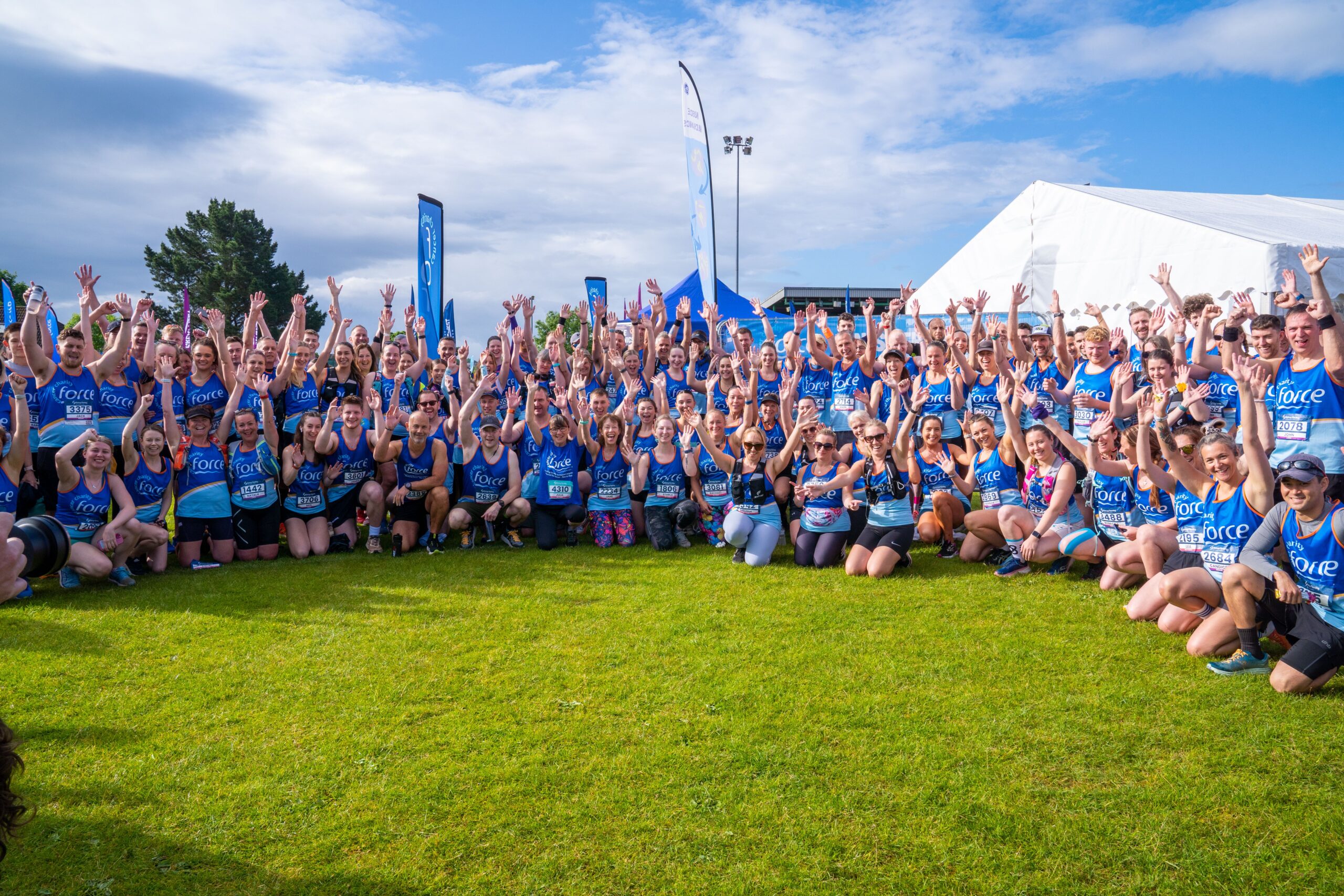If you’re taking on the Great West Run for FORCE Cancer Charity, you’re not just running for yourself—you’re making a meaningful impact in our local community. It’s an incredible cause, and your efforts will go a long way in supporting those who need it most.
As you gear up for the event, it’s important to keep your legs in one piece. Running injuries can happen to anyone, whether it’s your first 10K or you’ve got 20 marathons under your belt. This article will help you tell fact from fiction when it comes to stretching, “injury prevention,” and other tips to keep you smiling, even up Exeter’s hilliest roads.
1. Prevention vs. Risk Reduction
Let’s be realistic: if you’re going to train like mad for the Great West Run, there’s no absolute way to prevent all injuries. Think of risk reduction as your best mate: you can lower the chances of twisting an ankle or pulling a muscle, but you can’t banish the possibility entirely. It’s a bit like the weather in Devon, mostly lovely, but you never know when a sudden downpour might decide to join your run.
2. The Myth of Static Stretching
For years, people have believed that a good, long stretch before a run is the key to avoiding injury. Sadly, the research suggests otherwise: static stretching alone doesn’t appear to do much for preventing injuries. It can even reduce your muscle’s oomph if you’re about to sprint off the line at the start of the Great West Run.
What to Do Instead
A dynamic warm-up is your new best friend. This involves gently moving your muscles through the range of motion you’ll use during your run—think leg swings, gentle lunges, or brisk walks that gradually get your blood pumping. Warm-ups like these prep your body for movement without sapping your energy.
3. The Magic of Sleep (Yes, Really)
Here’s a secret weapon for runners: sleep. Proper shut-eye (aim for at least seven hours a night) is often overlooked, but studies show that lack of sleep bumps up your odds of injury. It’s when you’re tucked up in bed that your body repairs micro-tears in your muscles and consolidates all that training you’ve done. So skip that last scroll on your phone, and tuck in—your legs will thank you on race day.
4. Graded Exposure for Injuries (Keeping Calm and Carrying On)
Should you pick up a niggle during your training, going completely couch-potato isn’t usually the best idea. Instead, graded exposure—gently reintroducing load or mileage—helps rebuild strength without overdoing it.
Lighten the Load or Alter the Movement
If sprinting up hills is aggravating your knee, switch to gentle incline walks or shorter intervals.
Slow Down
If you can’t run as fast, try going slower or shorter distances to maintain some fitness without ramping up pain.
Progress in Steps
Gradually add distance or speed back in each week. It’s a bit like building up a tolerance for spicy curry—start with a mild korma, then edge your way towards a vindaloo!

Additional Tips to Keep You Moving
- Sport-Specific Routines: Rehearse the exact motion of running in your warm-ups. Use smaller strides, build intensity bit by bit, and let your muscles know what they’re in for.
- Cardio is King: Maintaining decent aerobic fitness (think brisk walks, gentle cycles, or low-impact cross-training) helps reduce fatigue during runs, which means fewer stumbles and less chance of that dreaded calf cramp.
- Massage and Other Therapies: They can feel lovely (who doesn’t enjoy a bit of pampering?), but they’re not bulletproof solutions for avoiding injury. Think of them as a nice complement rather than a miracle cure.
Conclusion
The Great West Run is a brilliant chance to challenge yourself and soak in Exeter’s sights—hills, seagulls, and all. While you can’t guarantee you’ll never get injured, you can stack the odds in your favour: prioritise proper sleep, focus on a dynamic warm-up, and ease back in if you pick up a tweak. With a measured approach and a sense of humour (essential for British running conditions), you’ll be crossing the finish line feeling chuffed, sweaty, and hopefully, injury-free.
Need Extra Support?
If you’re nursing an injury or want expert guidance to keep your legs race-ready, we’re here to help. Our team of physiotherapists and osteopaths at Motion Clinic can support your journey—whether you’re recovering or aiming for a personal best. Book your appointment today to stay strong and injury-free.
Key Takeaways
- Injury-proofing isn’t possible; reducing risk is.
- Static stretching isn’t the magic bullet for preventing injuries.
- Sleep is a powerful ally—don’t skip it.
- Gradual exposure following an injury beats going ‘all or nothing.’
- Enjoy the run and the Exeter scenery.

Disclaimer: The content here is for general informational purposes and should not replace professional medical advice. If you’re nursing an injury or have specific health concerns, consult a qualified healthcare practitioner. Then throw on your trainers and get ready for the Great West Run.
January 16, 2025. Andy Horide, Osteopath
